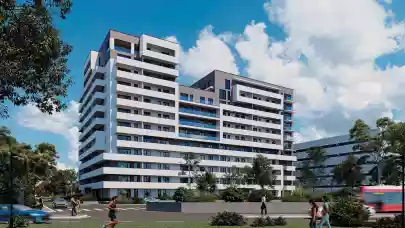
Companies with expiring lease contracts are increasingly preferring renegotiation to move to new premises. One of the reasons is the high office fit-out costs, as the outcome of Cushman & Wakefield’s annual EMEA Fit Out Cost Guide is showing.
The five largest lease transactions on the Prague office market last year were renegotiations of existing contracts. The cost of fitting out new offices is one of the factors companies consider when deciding whether to stay in their existing premises or move to new ones.
This only reflects the fact that fit-out costs in Prague are the highest in the CEE region and similar to those in Paris. Last year they averaged €1,252 per sqm in Prague, an 8% year-on-year increase.
Radka Novak, Head of Office Agency CEE, Cushman & Wakefield explains the tenants‘ standpoint: "Most are now downsizing their offices - but it also depends on the business and the size of the company. Financial institutions are the most likely to downsize their offices, especially shared service centres, which are most affected by the remote work model. Conversely, technology firms are often expanding, as are professional business services firms."
Companies are looking to ensure their spaces are used efficiently and meet current trends. The expansion of working remotely entails a reduction in the number of workstations and desk sharing, but on the other hand, it also requires the creation of new zones for video conferencing, community spaces for collaboration or, conversely, those for focused individual work. The environment should also encourage employees to spend at least some of their time in the office.
Glyn Evans, Head of Design + Build EMEA, Cushman & Wakefield comments on current workplace trends: “ It needs to be flexible enough and offer conditions for different types of work activities, provide quality technical equipment, and allow for relaxation or socialisation. Sustainability, diversity and inclusion requirements also play an important role. "
Thus, even office building owners have to motivate tenants to choose their scheme - whether new ones to move in or existing ones to stay. One incentive is fit-out contributions which are given to both new tenants and those renegotiating their leases in their existing spaces.
Radka Novak reveals details about contributions: “In the past two years, the fit-out contribution almost doubled, which also applies to renegotiations. Landlords understand the need to invest in remodelling existing premises, which can help to keep tenants in older buildings. If a completely new fit-out is built, the landlord can cover up to 40% of the tenant’s costs with their contribution. In case of rebuilding existing premises, the costs can be as much as 40% lower; still, the landlord’s contribution is necessary.”
In the EMEA cities compared, construction costs alone represent the largest item of fit-out costs, reaching 50% in Prague. However, the cost of furniture and technical equipment is also significant, typically accounting for around one-fifth, in Prague exactly 20%. The cost of technical (AV and IT) equipment is an equally high item in the local budget, with consultancy services related to the design of new offices and its implementation accounting for 10%. High construction costs are driven by increases in the price of construction work and materials. According to Eurostat data, construction prices across the eurozone and in the Czech Republic increased by around 12% year-on-year in 2022, and by a further 6% in 2023.
Glyn Evans concludes: “Whilst in the Czech Republic we don’t expect any significant decrease in construction costs soon, we are already seeing flattening material prices with improved availability. In addition, labour is also becoming more available in the construction industry due to the slowdown in development, which should also help increase competitiveness within the industry.”



